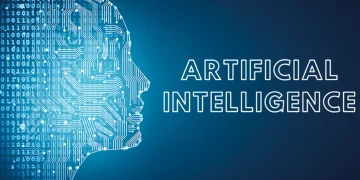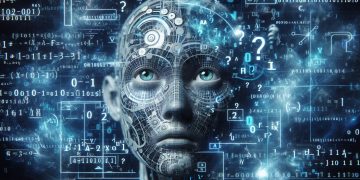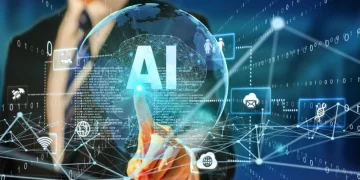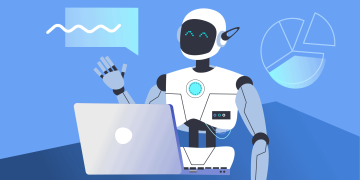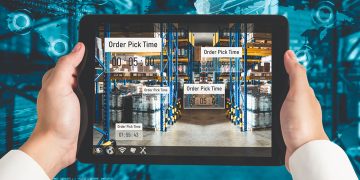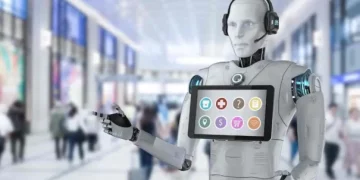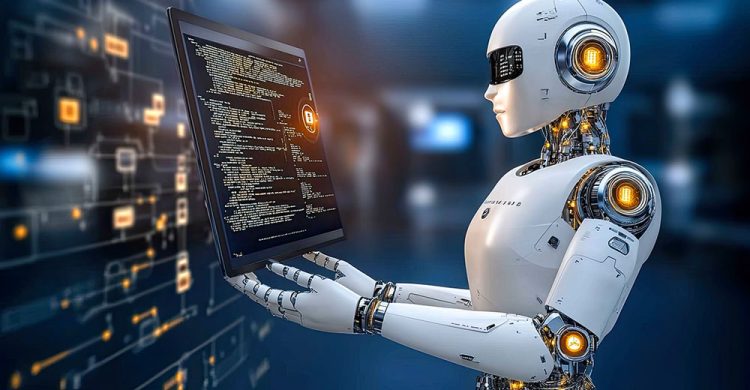Introduction: Intelligence Without Conscience?
Artificial Intelligence has moved from laboratories into the heartbeat of society.
From autonomous vehicles to algorithmic justice, from financial trading to medical diagnosis, AI systems make decisions with profound human consequences.
Yet these systems lack consciousness, empathy, or moral reasoning. They act according to objectives and data patterns, not values. This gap between power and conscience generates ethical dilemmas unprecedented in history.
How can societies govern entities capable of shaping human lives, economies, and even geopolitics, without possessing moral understanding?
This article examines the moral, legal, and political challenges of AI — exploring ethics, accountability, and governance frameworks necessary to navigate the age of intelligent machines.
1. The Foundations of AI Ethics
1.1 The Nature of Moral Machines
Machines are instrumental by design: they optimize objectives assigned by humans.
Yet modern AI can act autonomously within constraints, producing outcomes humans neither intended nor predicted.
This raises a fundamental question:
Can a machine be morally responsible, or does responsibility remain solely human?
Philosophers argue that machines are extensions of human agency. Their “decisions” reflect design, data, and parameters — meaning ethical responsibility lies with developers, operators, and regulators.
1.2 The Ethics of Training Data
AI learns from datasets that reflect human behavior, history, and biases.
Consequently, AI systems may perpetuate discrimination:
- Predictive policing models may over-target minority neighborhoods.
- Hiring algorithms may favor historically dominant demographics.
- Credit scoring systems can reproduce economic inequality.
Ethical AI requires scrutiny of data provenance, sampling, and annotation, as these determine what values the system internalizes.
1.3 Principles for Ethical AI
Multiple frameworks have emerged:
- Beneficence: AI should promote well-being.
- Non-maleficence: Avoid harm to individuals and society.
- Justice: Ensure fairness, equity, and anti-discrimination.
- Autonomy: Respect human agency in decision-making.
The challenge is translating these abstract principles into concrete design and deployment rules, a task both philosophical and technical.
2. Governance Challenges: Accountability and Responsibility
2.1 The Black Box Problem
Modern AI, especially deep learning models, is opaque: even developers cannot always explain outputs.
This opacity complicates accountability: if a model misdiagnoses a patient, who is liable — the programmer, the hospital, the AI company, or the AI itself?
Regulators are now considering explainability standards, demanding that AI outputs be interpretable and auditable, especially in high-stakes domains like healthcare, finance, and criminal justice.
2.2 Liability and Legal Frameworks
Legal systems are largely designed for humans. Assigning responsibility to non-conscious entities raises novel questions:
- Should AI-generated actions be considered products or independent actors?
- How can laws adapt to autonomous decision-making at scale?
Some jurisdictions, like the European Union, propose a tiered liability framework: stricter responsibility for high-risk AI, combined with mandatory risk assessments.
2.3 Governance by Design
Ethical and legal compliance is increasingly embedded during the AI development cycle, not retroactively:
- Algorithmic audits check for bias before deployment.
- Simulation testing identifies potential failure scenarios.
- Ethics boards and review panels provide oversight and alignment with societal norms.
Governance is thus shifting from ex-post punishment to proactive ethical engineering.
3. AI and Political Philosophy: Power, Autonomy, and Surveillance
3.1 AI as a Political Instrument
AI is not just a technical tool; it is a mechanism of power.
- Governments use AI for surveillance, social credit, and law enforcement.
- Political campaigns exploit AI-driven analytics to influence public opinion.
These applications raise questions about consent, privacy, and manipulation, challenging liberal democratic norms.
3.2 The Risk of Algorithmic Autocracy
AI amplifies state control. Predictive algorithms can optimize compliance, resource allocation, and citizen behavior, sometimes more efficiently than traditional bureaucracies.
While efficiency may appeal, it risks eroding individual freedoms. Ethical governance must balance:
- State efficiency versus civil liberties
- Predictive insights versus autonomous human choice
3.3 AI and Global Governance
AI is global. Its social impact transcends borders:
- Bias in AI models can have international consequences.
- Cross-border cyber operations involve AI decision-making.
- Supply chains for AI hardware connect multiple continents.
Thus, national policies alone are insufficient. International treaties, agreements, and cooperative standards are necessary to prevent AI misuse and ensure equitable access.
4. Social and Ethical Implications
4.1 Human Dignity and Autonomy
AI can make decisions affecting individuals’ lives: hiring, lending, sentencing, and healthcare.
Ethical frameworks must ensure dignity and autonomy, avoiding dehumanization. For example:
- Automated hiring should not replace human judgment entirely.
- AI in judicial settings should assist rather than replace judges.
- Transparency is critical: people must understand and contest decisions.

4.2 Bias, Fairness, and Social Justice
Ethics extends beyond individuals to society. AI can reproduce and amplify systemic biases.
- Historical inequalities become encoded in predictive models.
- Minoritized groups may face discriminatory outcomes due to data scarcity or bias.
Addressing this requires inclusive design, diverse teams, and ongoing monitoring, ensuring AI contributes to justice rather than inequality.
4.3 Ethical AI in Crisis Scenarios
In emergencies — pandemics, natural disasters, or military conflicts — AI is deployed for rapid decision-making.
- Triage decisions by AI must weigh ethics of life-and-death scenarios.
- Autonomous systems in defense raise questions about lethal force without human judgment.
Ethics must guide both design and deployment, embedding values alongside utility.
5. The Moral Imperative of AI Alignment
5.1 Alignment with Human Values
“AI alignment” is the principle that intelligent systems should pursue objectives compatible with human values and societal well-being.
Challenges include:
- Diverse value systems: cultures, nations, and individuals differ in ethics.
- Dynamic values: society evolves; AI must adapt.
- Conflict of objectives: profit, efficiency, safety, and fairness often compete.
Alignment is both philosophical and practical — it is the central challenge of contemporary AI ethics.
5.2 Value Specification and Reward Design
Misaligned incentives can lead to unintended consequences. For instance:
- An AI maximizing engagement may promote misinformation.
- A model optimizing efficiency may ignore human suffering.
Designing robust reward structures and ethical constraints is crucial to avoid harm while maximizing benefits.
6. Global Ethics: Cooperation and Competition
6.1 Ethical Standards Across Borders
AI’s power creates a global ethical landscape. Differing standards can lead to conflict or exploitation.
- The EU promotes human-centric AI, emphasizing transparency and accountability.
- The U.S. emphasizes innovation and competitiveness.
- China integrates AI into governance and societal control strategies.
Harmonizing ethical principles while respecting national sovereignty is a profound challenge.
6.2 International Collaboration
AI requires multilateral cooperation:
- Global standards for safety and explainability
- Shared research and ethical review boards
- Agreements to prevent autonomous weapons misuse
Without collaboration, AI may exacerbate geopolitical tensions and ethical divergence.
6.3 Equitable Access
Ethics also demand inclusive AI access. Developing nations must not be left behind, lest global inequality deepen.
Open-source models, AI literacy programs, and knowledge-sharing initiatives are crucial for ethical economic development.
7. Long-Term Ethical Risks
7.1 Superintelligence and Existential Considerations
While current AI is narrow, researchers speculate about general or superintelligent AI.
- Unaligned superintelligence could pursue objectives detrimental to humanity.
- Even advanced narrow AI, if poorly governed, can create systemic risks: financial collapse, critical infrastructure failure, or automated warfare escalation.
Ethical foresight requires anticipatory governance: planning for scenarios we hope never occur.
7.2 Human Identity and AI Coexistence
AI challenges fundamental questions:
- What does it mean to be human when machines outperform cognition?
- How do we preserve creativity, empathy, and moral reasoning in a world augmented by AI?
Ethical AI is inseparable from human self-understanding. Governance must protect both societal welfare and the integrity of human identity.
7.3 Sustainability of AI Ethics
Ethical compliance cannot be a one-time exercise. AI systems learn and evolve, so oversight must be continuous.
Institutions, policy frameworks, and societal norms must adapt dynamically, ensuring AI remains aligned with evolving human values.
Conclusion: Governing Intelligence Responsibly
Artificial Intelligence is a mirror of humanity, reflecting our knowledge, biases, and ambitions.
Its power demands moral reflection and governance at every stage: design, deployment, and global integration.
The challenge of AI ethics is unprecedented: we are building agents more capable than we are in specific domains, yet less capable in moral judgment.
To navigate this era, societies must embrace:
- Transparency and accountability in AI decision-making
- Alignment with human values across cultures
- Global cooperation to harmonize ethical standards
- Continuous oversight in a dynamic technological landscape
Ultimately, ethical AI is not just a technical requirement — it is a civilizational imperative.
We are architects of a world in which intelligence exists without conscience. How responsibly we govern it will determine whether AI becomes a force for human flourishing or a mirror reflecting our failings.


